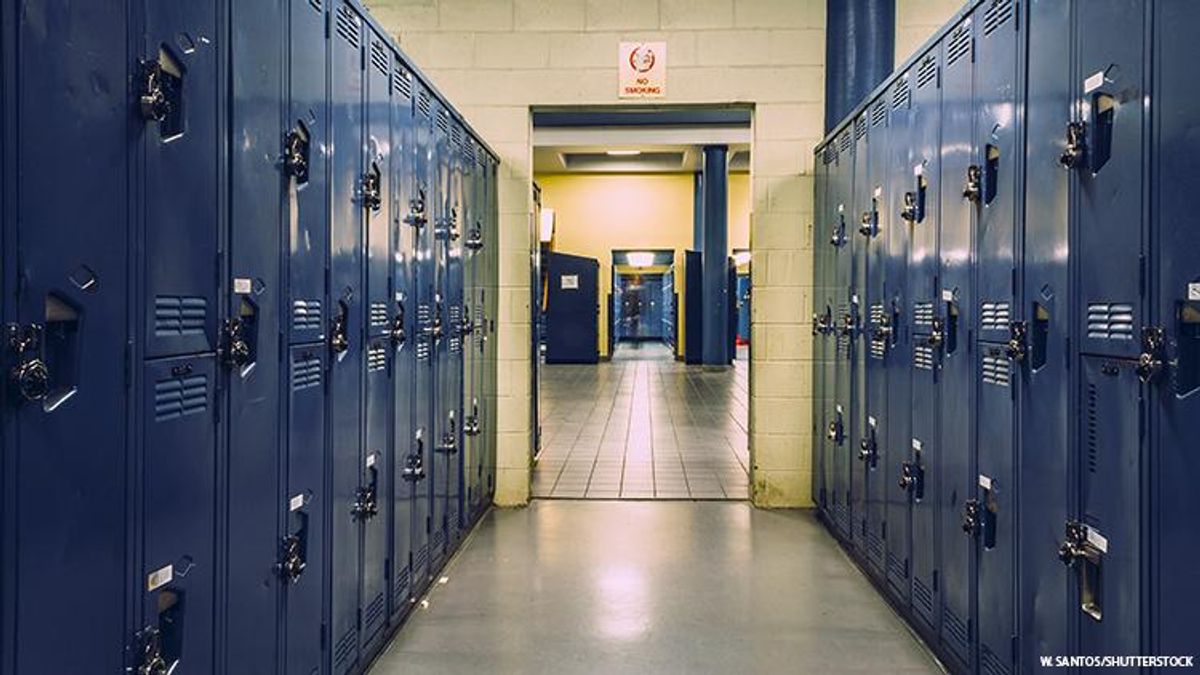A school board in Virginia is considering a policy that would require transgender students to make a written request, approved by their parents, to use the restrooms and changing rooms consistent with their gender identity -- and many parents and LGBTQ+ rights supporters are enraged.
The policy, which was written by the anti-LGBTQ+ group Alliance Defending Freedom, was introduced Tuesday at the Hanover County School Board meeting, the Richmond Times-Dispatch reports.
The county is in the Richmond metropolitan area. It's the same school district that apologized last week after revealing a logo that many likened to a swastika.
"The policy suggests that the written request may contain several personal documents related to the student including their disciplinary or criminal records, as well as signed statements from the student's doctor or therapist 'verifying that the student has been diagnosed with gender dysphoria and/or that the student consistently and authentically expresses a binary gender identity,'" the Times-Dispatch reports. Board attorney Lisa Seward, who presented the policy, said those documents are not required.
The principal of the student's school would then summarize the request and send it on to the school board, which would make the final decision on whether to grant it.
Board members did not discuss the policy, but several parents spoke up during a public comment period. "Not only does [a student] have to explain transgenderism to you, not only do I have to support it, but somehow we're to give you personal, invasive information from our medical provider or therapist to also support who he is -- and all of this is just to use the bathroom," said Dana Clark, the parent of a trans child, according to the Times-Dispatch.
Shannon Spiggle, who said she is Jewish and a member of the LGBTQ+ community, likened the proposed policy to oppression of Jews. "When I read the part of policies that require a background check, among other requirements, just for a child to use the restroom, I thought about my great-grandma," a Holocaust survivor, Spiggle said. "Instead of talking about the ... paperwork and hoops they have to go through just to use the bathroom, learn from the history of the Holocaust. Do not adopt these policies."
Virginia passed a law in 2020 requiring school districts to adopt a model policy prepared by the state's Department of Education on equal treatment of transgender students, including access to the facilities that comport with their gender identity or a more private option if students prefer. Hanover County OK'd portions of the policy, but not the part regarding use of restrooms and changing rooms, according to the American Civil Liberties Union's Virginia affiliate. Late last year, the organization, representing five families with trans children, filed suit against the district.
The ACLU of Virginia and other civil rights groups issued statements Tuesday against the ADF-written policy now under consideration. "This is not just about bathrooms or locker rooms. It's about the right of transgender students to exist in public spaces without having to justify or explain themselves," said Breanna Diaz, policy and legislative counsel at the ACLU of Virginia. "Yet the Hanover County School Board's proposed policy seeks to do just that by imposing an invasive policy that will deter youth from accessing school facilities. The school board must listen to Hanover families and oppose the proposed policy and immediately adopt a bathroom and locker room policy consistent with the Virginia Department of Education's model policies."
"The rights of transgender and nonbinary students in Hanover County are not up for debate," added Narissa S. Rahaman, executive director of Equality Virginia. "The Hanover County School Board's unnecessary and discriminatory policy will lead to more harm for transgender and nonbinary students in Hanover public schools. The school board can send a message that they truly value and support transgender and nonbinary students by ceasing engagement with Alliance Defending Freedom and rejecting the policy."
The board has scheduled another public hearing on the policy August 16 and plans to vote on it August 30.


















































































